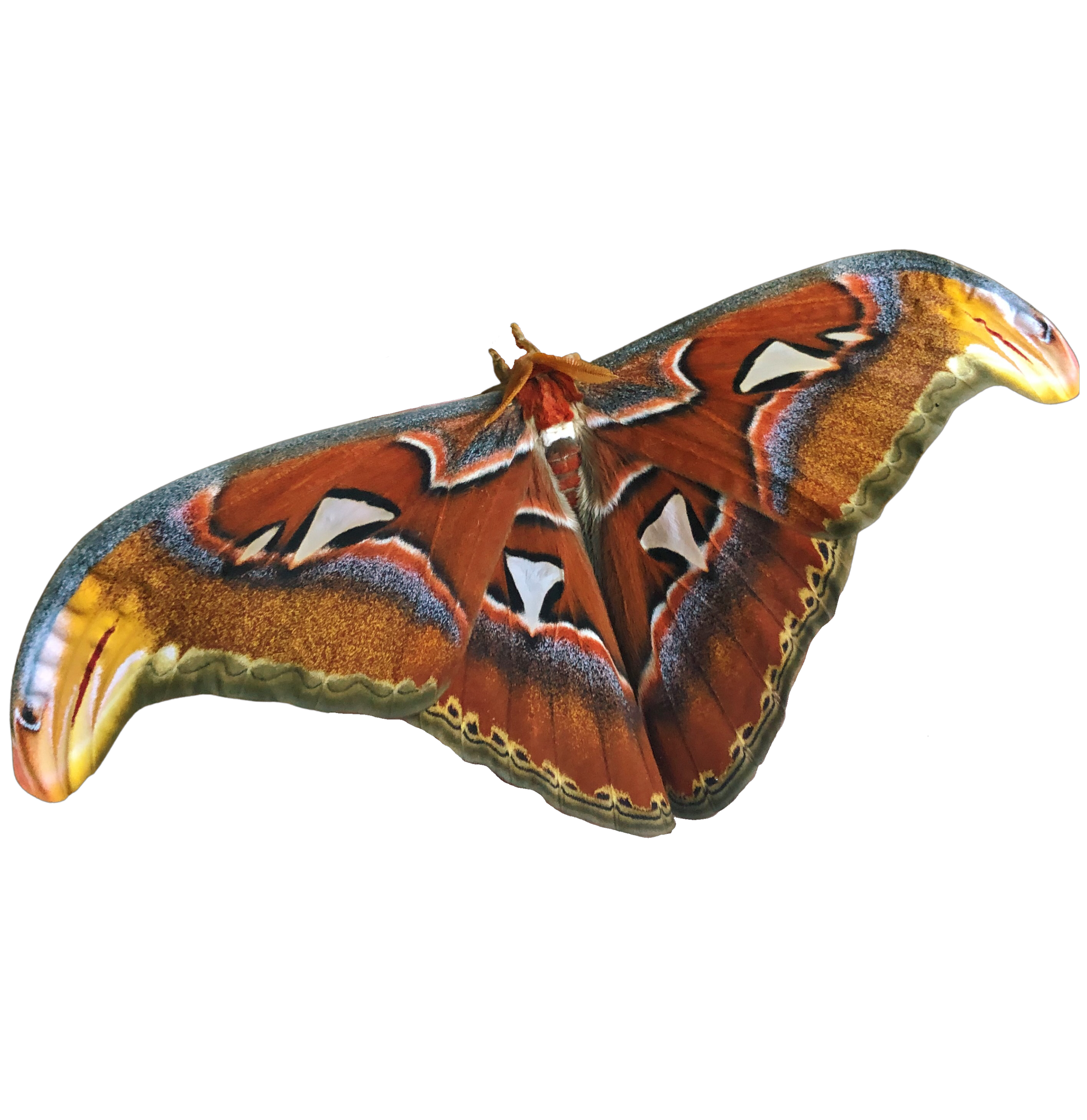NOW: Giant Atlas Moth COCOONS
Difficulty: very easy (1/10) for cocoons
Temperature: room temperature; mist heavily for humidity
The Atlas Moth is native to Southeast Asia. It is commonly found in tropical and subtropical regions, where it inhabits diverse habitats, such as rainforests, woodlands, and cultivated areas. When conditions are unfavourable for breeding, the pupae may remain dormant inside their cocoons for many months, emerging in response to an improvement in conditions. Cocoons are very easy to look after at home, doing fine at room temperature, however will benefit from some added heat which usually gets them to emerge sooner. Regardless, spray them twice daily to induce emergence as humidity is essential for healthy emergence and simulates the rainy season when the moths would naturally emerge. Caterpillars can be a challenge but are certainly worth the effort! They eat many different plants in the wild, but some great ones for captive rearing include: Lilac, Privet, Willow, Sweetgum, Ash, Custard Apple, Cherry Laurel, Portugal Laurel, Cherry (wild and domestic varieties), Citrus, and more.
Difficulty: very easy (1/10) for cocoons
Temperature: room temperature; mist heavily for humidity
The Atlas Moth is native to Southeast Asia. It is commonly found in tropical and subtropical regions, where it inhabits diverse habitats, such as rainforests, woodlands, and cultivated areas. When conditions are unfavourable for breeding, the pupae may remain dormant inside their cocoons for many months, emerging in response to an improvement in conditions. Cocoons are very easy to look after at home, doing fine at room temperature, however will benefit from some added heat which usually gets them to emerge sooner. Regardless, spray them twice daily to induce emergence as humidity is essential for healthy emergence and simulates the rainy season when the moths would naturally emerge. Caterpillars can be a challenge but are certainly worth the effort! They eat many different plants in the wild, but some great ones for captive rearing include: Lilac, Privet, Willow, Sweetgum, Ash, Custard Apple, Cherry Laurel, Portugal Laurel, Cherry (wild and domestic varieties), Citrus, and more.
















